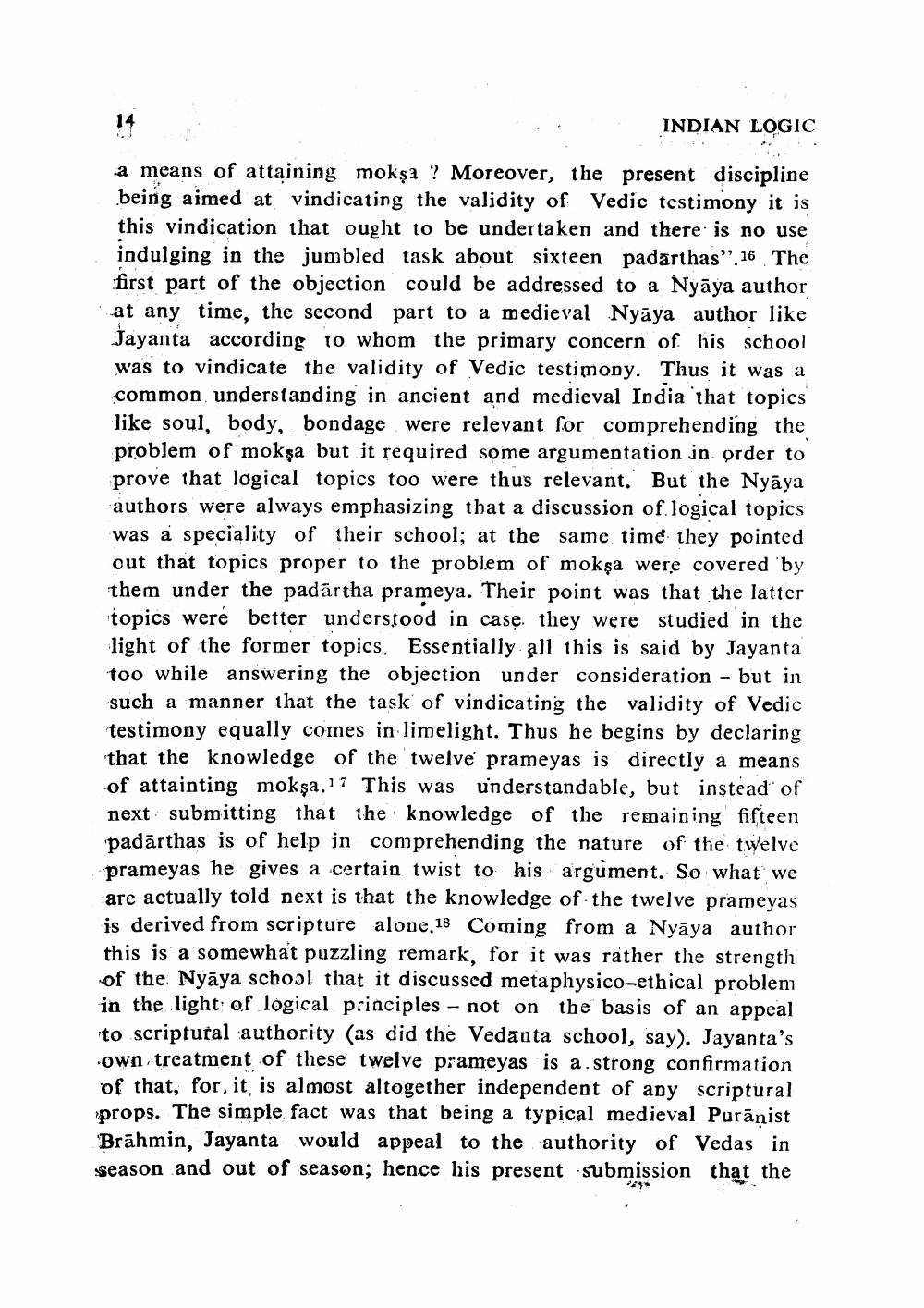________________
INDIAN LOGIC
a means of attaining mokşa ? Moreover, the present discipline
ng aimed at vindicating the validity of Vedic testimony it is this vindication that ought to be undertaken and there is no use indulging in the jumbled task about sixteen padarthas". 16 The first part of the objection could be addressed to a Nyāya author at any time, the second part to a medieval Nyāya author like Jayanta according to whom the primary concern of his school was to vindicate the validity of Vedic testimony. Thus it was a common understanding in ancient and medieval India that topics like soul, body, bondage were relevant for comprehending the problem of moksa but it required some argumentation in order to prove that logical topics too were thus relevant. But the Nyāya authors were always emphasizing that a discussion of logical topics was a speciality of their school; at the same time they pointed out that topics proper to the problem of mokşa were covered by them under the padārtha prameya. Their point was that the latter topics were better understood in case they were studied in the light of the former topics. Essentially all this is said by Jayanta too while answering the objection under consideration - but in such a manner that the task of vindicating the validity of Vedic testimony equally comes in limelight. Thus he begins by declaring that the knowledge of the twelve prameyas is directly a means of attainting moksa. 17 This was understandable, but instead of next submitting that the knowledge of the remaining fifteen padārthas is of help in comprehending the nature of the twelve prameyas he gives a certain twist to his argument. So what we are actually told next is that the knowledge of the twelve prameyas is derived from scripture alone.18 Coming from a Nyāya author this is a somewhat puzzling remark, for it was rather the strength of the Nyāya school that it discussed metaphysico-ethical problem in the light of logical principles - not on the basis of an appeal to scriptural authority (as did the Vedanta school, say). Jayanta's own treatment of these twelve prameyas is a strong confirmation of that, for, it is almost altogether independent of any scriptural props. The simple fact was that being a typical medieval Purānist Brāhmin, Jayanta would appeal to the authority of Vedas in season and out of season; hence his present submission that the




